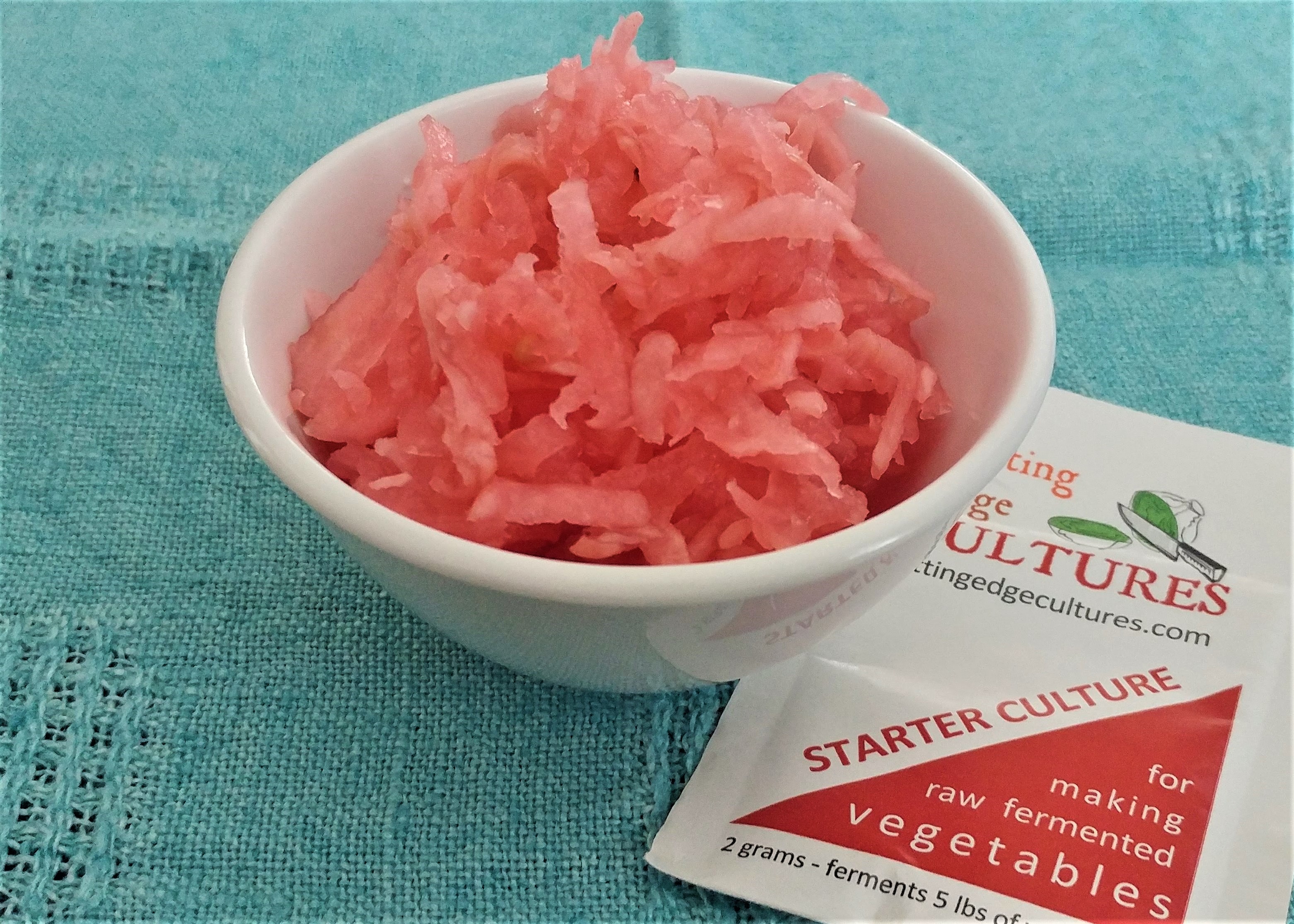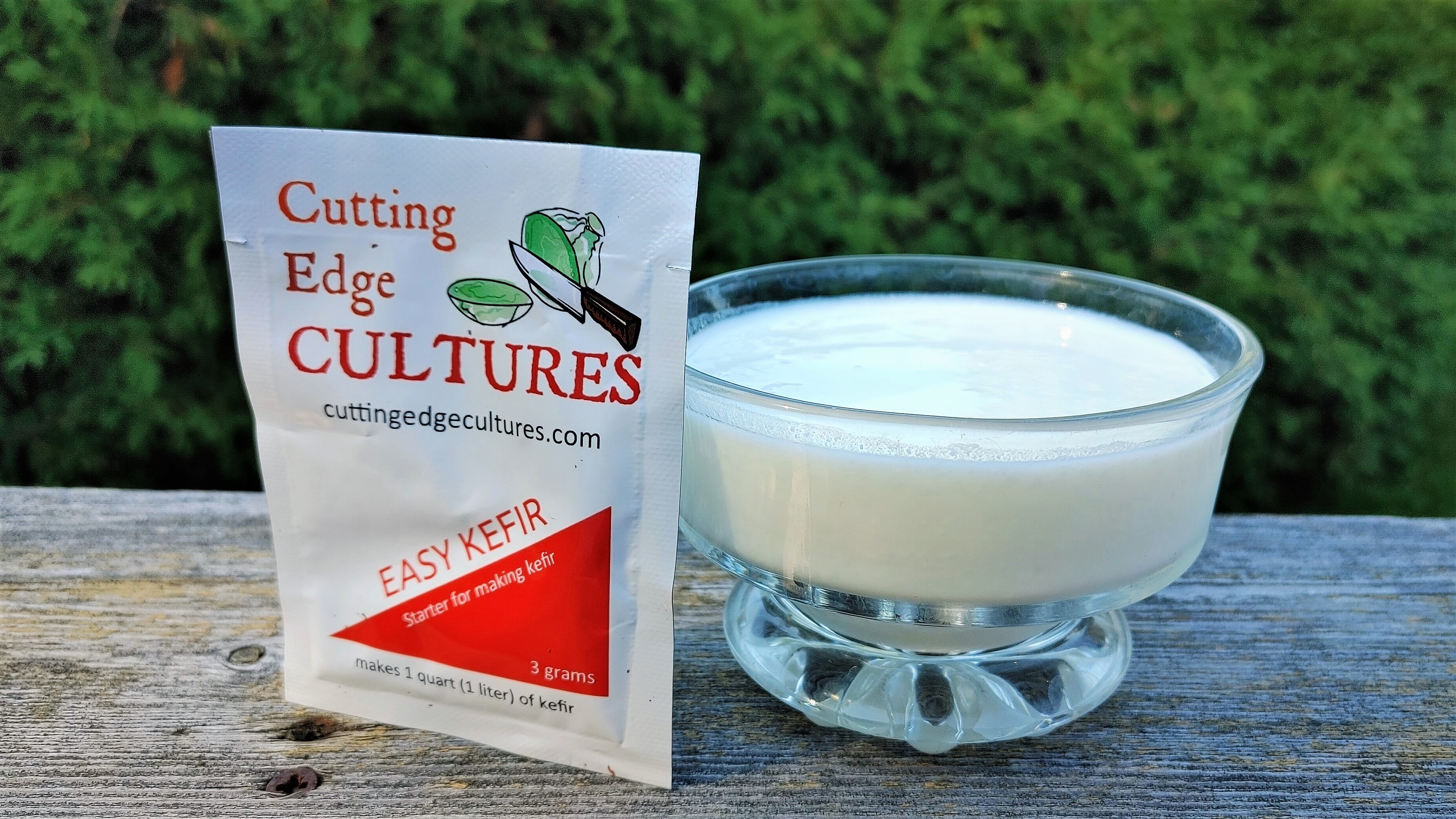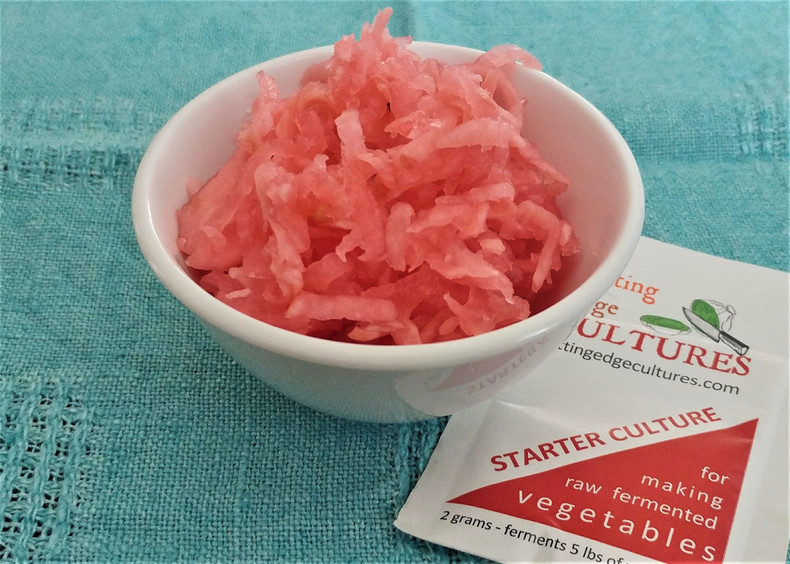

There's a growing fascination with cultured foods these days.
For good reason!
Cultured foods offer a myriad of benefits, thanks in large part to cultured food starters. These minuscule yet mighty microorganisms are the engine behind successful homemade ferments, offering practical advantages and nutritional perks.
Consistency
The starters contain specific strains of beneficial bacteria and good yeasts that kick-start fermentation. You can ferment vegetables, milk, or juice, and the starters will help maintain a controlled environment, reducing the risk of spoilage and producing a more reliable outcome.
Nutritional profile
Cultured food starters enhance the nutritional profile of cultured foods. These microorganisms break down complex molecules during fermentation, making nutrients more bioavailable. When you make sauerkraut, for example, the starter culture preserves its vitamin C content and enhances its probiotic properties, which is great for gut health and digestion.
Customization and experimentation
With a variety of starter cultures available, you can tailor your creations to your tastes and dietary needs. Whether you prefer tangier kimchi, bubblier Kefir Soda, or milder yogurt, there's a starter culture to help you achieve your desired flavor profile.
Cost-effectiveness and reducing waste
Store-bought cultured foods can be pricey, especially those labeled as probiotic-rich. Making cultured foods at home with starter cultures is a budget-friendly alternative. You can produce large batches of fermented foods while saving money in the long run and reducing packaging waste.

